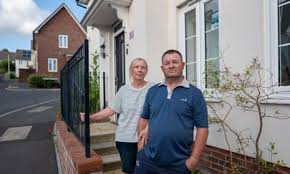what is a property survey “see our top tips”
If you’ve had an offer accepted on a property and don’t require a mortgage, it’s wise to arrange a property survey before moving forward. While surveys are not legally mandatory, they provide valuable insights and information about the property’s condition.
Opting for a survey is beneficial, even though it’s not compulsory. Surveys can uncover potential issues that may need fixing, helping you avoid unexpected costs and problems after purchase.
For those needing a mortgage, lenders typically require a mortgage valuation survey. This type of survey helps lenders verify that the property’s price reflects its true value, ensuring the loan amount is appropriate. Although not as thorough as other surveys, a mortgage valuation can reveal significant defects and assess if the property is a secure investment for lending purposes.
Who organizes a survey when buying a house?
Typically, it is the buyer’s responsibility to arrange a survey. It is important to hire a surveyor who is registered with either the Royal Institute of Chartered Surveyors (RICS) or the Residential Property Surveyors Association (RPSA) to ensure professionalism and expertise. Choose a local surveyor with positive reviews to get the most reliable service.
You can find a surveyor through recommendations from your estate agent, mortgage lender, or solicitor, or you can search for one yourself. Using comparison websites and seeking advice from family and friends are also good ways to find a reputable professional.
How much does a property survey cost?
The cost of a property survey varies depending on the surveyor’s fees and the level of detail required. Factors such as the size and value of the property also influence the cost; generally, larger or more expensive properties will incur higher survey fees. While surveys can be costly, they are often worth the investment as they can reveal costly issues that might allow you to renegotiate the property price, potentially saving you money in the long run.
Which property survey should I use?
The type of survey you need depends on the property’s age, size, and unique characteristics. Newer homes might only require a basic survey to identify urgent issues, while older or larger homes often need more comprehensive evaluations. Properties with unusual architectural features or materials, like timber frames or thatched roofs, typically require specialized surveys to assess their condition and maintenance needs effectively.
Condition Report This basic form of property survey identifies any serious or urgent defects that need immediate attention but doesn’t delve into detailed analysis. It’s particularly suitable for newer homes or those in good condition, as it primarily highlights significant risks and defects without an extensive examination.
Homebuyer Report This more comprehensive report not only identifies issues like damp or subsidence that could impact the property’s value and necessitate ongoing maintenance but also focuses on visible concerns without invasive inspection methods like drilling into walls. If the report provides cost estimates for necessary repairs, this information can be used to negotiate a lower purchase price, potentially offsetting the cost of the survey itself. Additionally, some Homebuyer Reports include a market valuation option, which can further influence price negotiations if the valuation is below the initial offer.
Building Survey The most thorough option, a Building Survey is essential for assessing the full structure and condition of a property, particularly older, listed, or extensively renovated homes. This survey covers all accessible parts, including attics, cellars, and beneath floors, providing a detailed list of defects and recommended repairs. While it is the costliest survey, the depth of information can be crucial for understanding the full scope of potential maintenance and repair costs.
Understanding Property Surveys When buying a home, conducting a property survey is crucial to identify potential issues like structural defects, dampness, or electrical problems. While some buyers may hesitate due to costs or potential delays, skipping this step can lead to unexpected, costly repairs after purchase. A proper survey can reveal significant problems, allowing buyers to renegotiate the price or request repairs before finalizing the sale.
Types of Property Surveys
- Mortgage Valuation: Required by lenders to assess property value for loan security, this does not delve deep but notes obvious major issues.
- Homebuyers Report: Offers a detailed look at the property’s structure and condition using a simple traffic light rating system. It comes in two types: without valuation (around £350) and with valuation and insurance reinstatement value (around £450).
- RICS Building Survey: Ideal for older, larger homes or those needing extensive renovations. This detailed survey examines hidden areas like behind walls and between floors and includes repair advice with cost and timing estimates (typically costing between £500 and £2000).
Survey Costs The cost of property surveys varies widely, from approximately £350 to £2000, depending on the type and depth of the survey conducted.
Surveys for New Builds Even new properties can have defects. A snagging survey, costing between £300 and £600, should be conducted to identify any issues before moving in. It’s best conducted before contract exchange if possible.https://newhomesinspectionsuk.com/
Finding a Qualified Surveyor Ensure your surveyor is a member of the Royal Institution of Chartered Surveyors (RICS) or the Residential Property Surveyors Association (RPSA). Recommendations can also be sought from solicitors, mortgage lenders, or estate agents for reputable surveyors.

